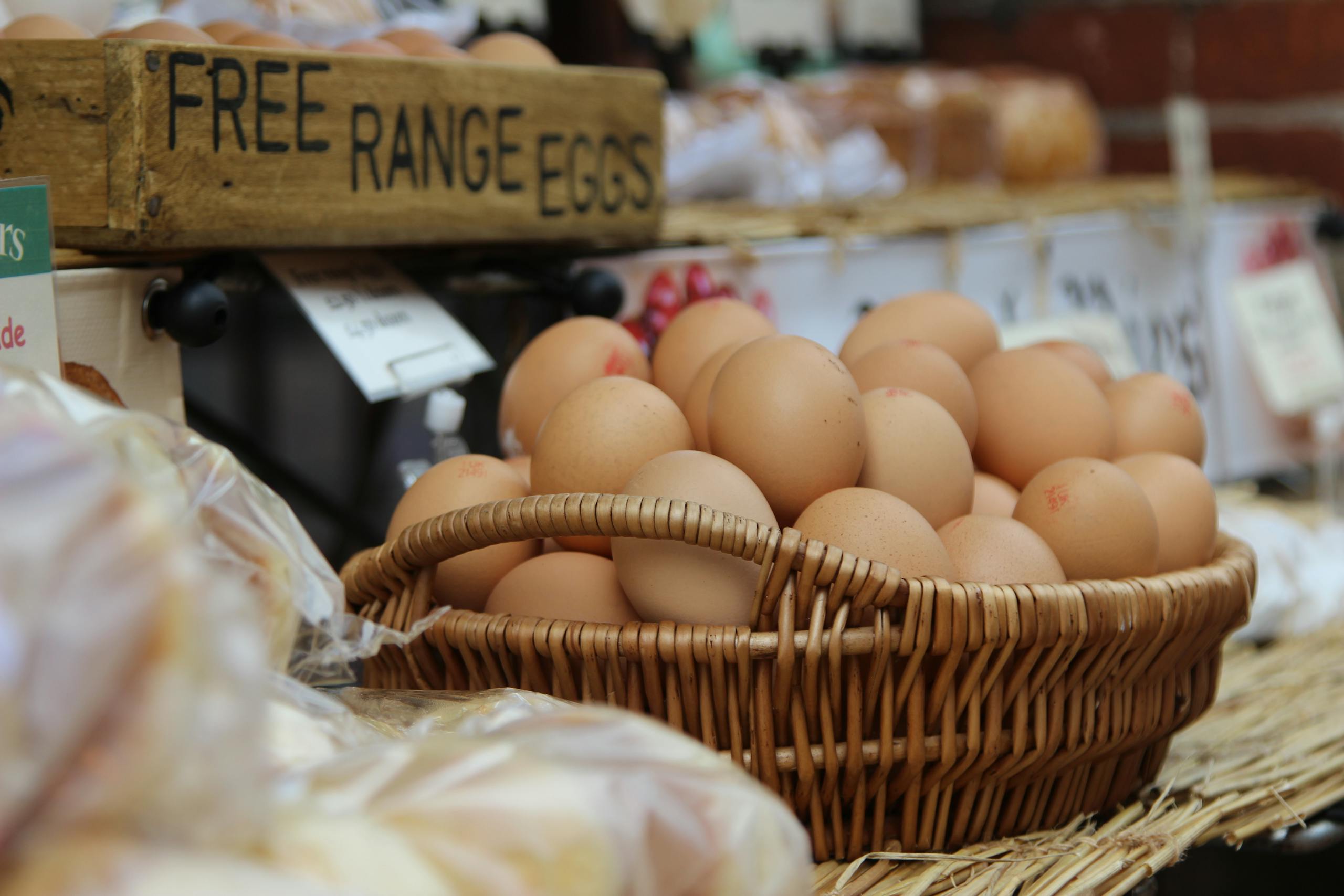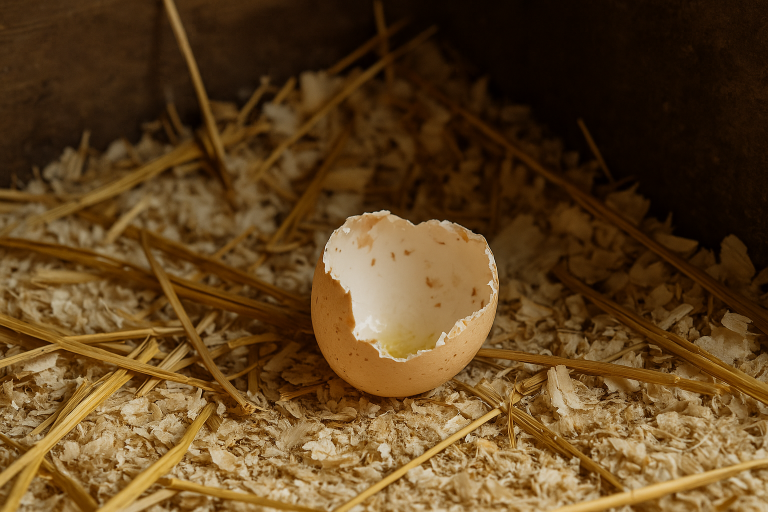What To Do With Surplus Eggs From Your Chickens
When your hens are laying well, it’s easy to find yourself with more eggs than you can possibly use. Even a small flock can overwhelm a household once spring arrives and production peaks. I’ve often looked at a full tray in the kitchen and wondered what on earth to do with them all. The good news is that there are plenty of safe, legal and creative ways to make the most of surplus eggs.
Why surplus eggs are a common problem
Surplus eggs tend to arrive in bursts, usually in spring and early summer when the days are longer and hens are at their most productive. Even if you only keep three or four layers, that can mean 20 or more eggs a week. For a family that only uses a few at breakfast, that’s a lot to get through. Add in seasonal fluctuations – hens slowing down in winter then bouncing back with enthusiasm – and it’s easy to see why gluts are a normal part of chicken keeping. For more information, read my post: How Often Do Chickens Lay Eggs?
Safe storage of fresh eggs
One of the simplest ways to manage a glut is by storing eggs properly so they last longer. Fresh eggs can be kept at room temperature for up to two to three weeks if they are left unwashed. In the UK, where eggs aren’t routinely washed before sale, this is perfectly safe as the natural protective bloom helps keep out bacteria.
If you want them to last longer, the fridge is best. Just pop them in a carton to protect them from knocks and make sure you don’t wash them until you’re ready to use them – washing can remove the protective layer and shorten shelf life. A quick float test will tell you if an egg is still good: fresh ones sink, older ones rise.
I always write the collection date on each egg in pencil when I bring them in. It only takes a moment and means I never get caught wondering which ones are freshest.
Cooking and preserving surplus eggs
When you’ve got more eggs than meals, preserving them is a good way forward. A few tried and tested options are worth knowing about.
- Freezing: Eggs can be cracked and whisked together before freezing, either as whole eggs or separated yolks and whites. They’re handy for baking later.
- Pickling: A traditional method that keeps eggs for months in vinegar and spices. Pickled eggs are a classic pub snack and store cupboard staple.
- Baking: Cakes, quiches, omelettes and custards are all excellent ways to use up half a dozen at once. Surplus eggs are my wife’s excuse to bake an extra sponge for the freezer.
- Dehydrating or powdering: A specialist option but useful for those who like long-term storage. Powdered eggs are lightweight and last for months. You can do this at home, though it’s a bit of a faff as they need to be dried in an oven at low heat for up to 12 hours and then pulverised.
Sharing your surplus locally
If you’ve reached the point where you can’t face another omelette, sharing is a simple solution. Neighbours, friends and family are usually delighted with a box of fresh eggs, and it’s a great way to spread the benefits of your flock. When I first got chickens back in the early 70s, any spares went straight to my two grandmothers.
Some keepers even swap their surplus, trading eggs for garden produce, homemade jam or even a favour or two. Allotments are a great place for swapping! In some areas, community fridges or food-sharing schemes accept fresh eggs, though you’ll need to check hygiene requirements locally. I’ve offered them to food banks in the past, but they could only accept those with the British Lion stamp.
Selling eggs in the UK – what the law says
If you have regular surpluses, selling is an option, but it does come with rules. In the UK, you can sell eggs directly to consumers at the door or through small-scale arrangements, but you cannot supply them to shops or restaurants without being registered as a producer.
Eggs offered for sale should carry a best-before date, ideally 28 days from laying, and advice to store them in the fridge. They must be clean, but not washed, as washing can spread bacteria through the shell. For a full breakdown, see my post on Selling Eggs in the UK: What You Need to Know.
For most backyard keepers, casual doorstep sales to friends and neighbours are enough to keep egg trays manageable and cover some feed costs.
Preventing waste and keeping hens healthy
It’s not just about what you do with the eggs, it’s also about preventing problems in the coop. Surplus eggs left in the nest box are at risk of breaking, which can encourage hens to eat them. Once a flock starts egg eating, it’s a difficult habit to break.
Matching your flock size to your household’s needs is the most straightforward way to avoid too many spare eggs. Keeping notes of laying patterns through the year also helps you prepare for gluts, making sure you’ve got recipes, space in the fridge and neighbours ready to take a tray.
In my own routine, collecting eggs daily is non-negotiable. It reduces the chance of breakages, keeps hens in the habit of using the nest box, and means I always know exactly what’s fresh.
Storing eggs in boxes and containers
How you store your surplus makes a real difference to freshness and safety. Cardboard egg trays are great for larger numbers, while plastic stackable containers save space in the fridge. I’ve found that sturdy lidded boxes also protect eggs from knocks and smells. Having the right storage solution keeps eggs organised and easy to use.
Here are some ideas for storing your eggs and links to where you can buy them:
- 4- tier, gravity-fed holder for 30 eggs
- Lidded egg container for fridge (14 eggs)
- 2-tier, clear plastic egg drawer for fridge (32 eggs)
- Stackable wooden egg racks for the kitchen (36 eggs)
- 3-tier storage for 24 eggs that fits in a refrigerator door shelf
- Traditional supermarket-style egg boxes
- Plastic stackable egg trays (4 pack) 24 eggs per tray
- Rustic egg storage basket
- Rotating spiral, gravity-fed holder for 32 eggs
Conclusion
A surplus of eggs from your chickens is a happy problem to have. With proper storage, a little creativity in the kitchen, and the option to share or sell, every egg can be used to its full potential. For me, a good laying week means a few extras in the fridge, a cake cooling on the side, and a walk across the road to hand a box to a neighbour. Hens may not follow a calendar, but when they’re in full swing, they give us plenty to enjoy.
Disclosure: This post may contain affiliate links. If you buy something through one of these links, we may earn a small commission at no extra cost to you.
Kevin O’Hara got his first chickens back in 1972. A backyard chicken keeper based in Yorkshire, he created of KeepingChickens.uk back in 2012. With years of hands-on experience, he shares practical, UK-specific advice to help others care for happy, healthy hens. Learn more about Kevin on the author page.






